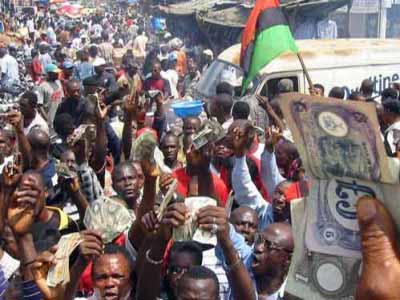
• Lack of patriotism cause of Nigeria’s ills, stakeholders insist
The Rule of Law and Accountability Advocacy Centre (RULAAC) has stated that the current insecurity ravaging the South East region should not solely be blamed on the pro-Biafra groups agitating for the actualisation of Biafra.
It stated that the attitude of the Federal Government in the allocation of infrastructure, indiscriminate arrest of young people in the guise of bandits, and brute force by security operatives, among others, have helped fuel insecurity in the region.
Executive Director of RULAAC, Okechukwu Nwanguma, stated this in Enugu, yesterday while speaking during the official launch of the report, ‘Unveiling the Roots of Insecurity; Healing the Wounds of Human Rights Violations in South-East Nigeria: A Path Towards Peace, Open Democratic Space and a Prosperous Future.”
Nwanguma noted that blaming pro-Biafra agitation alone for insecurity in the region would not paint a true picture, but a warped and jaundiced picture of what is the situation.
He, however, said that the solution to tackling insecurity in the South East should be put in proper perspective to achieve the desired goal of ensuring enduring peace.
Nwanguma noted that findings by the group show a bleak picture of public security policies in the region, heavily reliant on repressive police and military action, often with excessive force.
He said: “The report documents instances where the police in the region have acted in compliance with reckless directives, such as the “shoot at sight” order by former President Muhammadu Buhari in 2021 and the Inspector General of Police’s (IGP) subsequent order on them to go after the indigenous People of Biafra (IPOB), kill them and not worry about shouts of human rights violation.
“The police embarked on indiscriminate mass raids and arrests, incommunicado detention, torture, public parade and executions of accused, mostly innocent persons.”
Meanwhile, socio-economic and political challenges in Nigeria, such as insecurity, bad leadership, corruption, misgovernance, abuse of human rights, nepotism, among others, have been attributed to a lack of patriotism among citizens of the country.
This was disclosed by members of Civil Society Organisations (CSOs), lawmakers, media practitioners, among other critical stakeholders in Imo State, in a one-day multi-stakeholders senatorial town hall meeting on, ‘The Role of Citizens’ Participation in Good Governance, Transparency and Accountability,’ organised by Alliance for Africa (AfA), an African feminist non-governmental organisation, in conjunction with Civil Society Legislative Advocacy Centre (CISLAC) and MacArthur Foundation, held in Owerri.
The Imo stakeholders stated that the inability of Nigeria’s citizens to unite and fight the common course of the nation would continually enhance the ills in the country, instead of combating them for the general well-being of citizens and the nation at large.
They said: “Until every Nigerian thinks and acts beyond tribalistic and religious sentiments, prioritising nation’s unity, peace and development over personal gains, fearlessly speaking truth to power, efforts to get Nigeria of our collective dream will continue to remain a mirage.”













